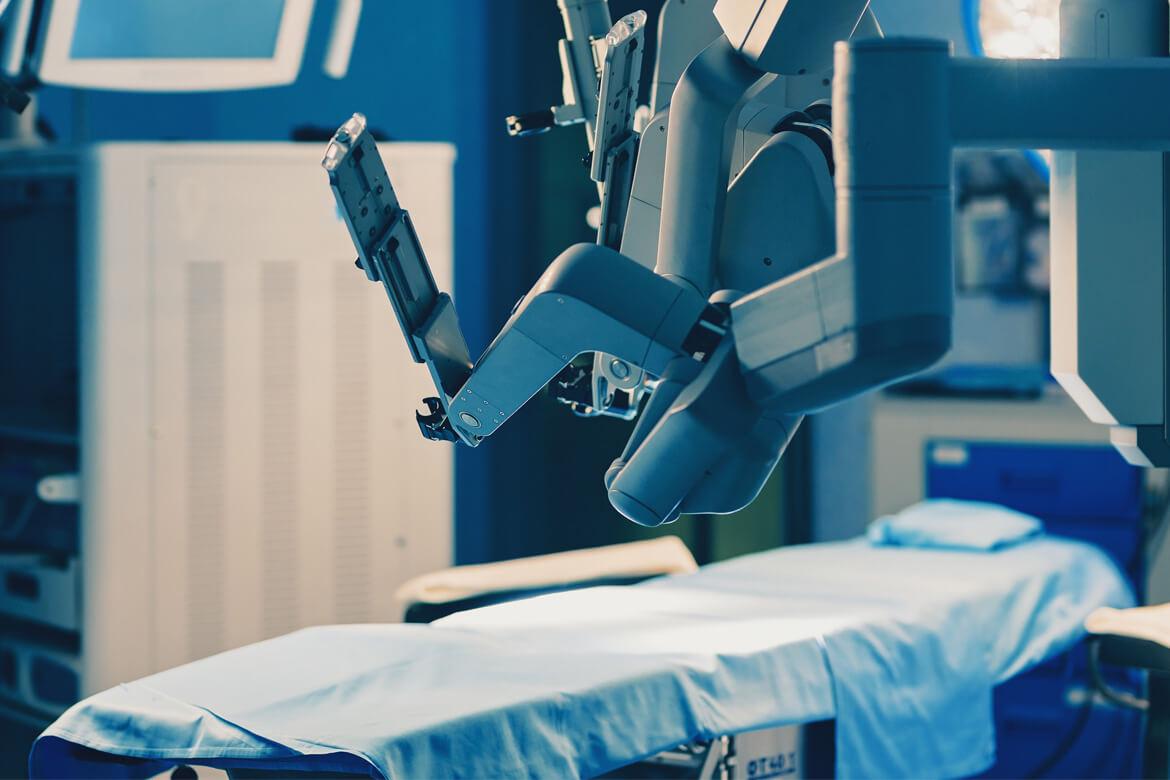-
-
Featured Care Areas

Prostate Cancer
How is prostate cancer diagnosed?
Prostate cancer is diagnosed with the help of several diagnosis tests, following a physical examination and review of the person's medical history. These tests help doctors determine the stage of the cancer and whether it has spread to nearby organs.
Diagnostic tests for prostate cancer include:
Digital rectal exam (DRE)
The doctor will inspect the prostate manually, using a gloved finger inserted through the rectum. This allows the doctor to feel if there are any lumps that could be tumours.
Prostate-specific antigen (PSA) test
This is a blood test that looks for elevated levels of PSA produced by the prostate. A PSA test will allow you to detect prostate problems early, even when there are no symptoms.
Prostate biopsy
A biopsy is a process to remove a small sample of tissue from the suspected tumour. This sample is then analysed for the presence of cancer cells.
Magnetic resonance imaging (MRI)
An MRI uses strong magnetic fields to take a series of detailed pictures. This creates a clear image of the prostate and surrounding tissues.
Computerised tomography (CT) scan
In a CT scan, a computer linked to an X-ray machine captures images of the prostate from different angles. It may be performed with or without insertion of a contrast dye.
Ultrasound
For suspected prostate cancer, a transrectal ultrasound may be performed, using a small probe that is inserted into the rectum. The probe will emit sound waves to create an image of the prostate gland.
Bone scan
In a bone scan, a small amount of radioactive substance is injected into a vein, which will show up in the bones. This scan may be recommended to see if the cancer has spread to the bones.
Prostate cancer is graded using the Gleason score and staged based on the location and extent of the tumour. The Gleason score is based on the biopsy to determine if the cancer is of low, intermediate or high risk. Both the grade and stage will help the doctor determine treatment options.
How is prostate cancer treated?
As prostate cancer may take many years to progress, and treatment may carry risks, doctors may choose to monitor the tumour rather than treat it immediately. Treatment also depends on the extent of the cancer, symptoms, age, as well as the general health of the patient.
For patients who have a localised disease, treatment options include:
Surgery
The main type of surgery for prostate cancer is a radical prostatectomy. Robotic radical prostatectomy is quickly becoming the most popular treatment for prostate cancer, especially when the cancer is confined to the prostate gland.
Radical therapy
This treatment uses high-energy rays to target and kill cancer cells.
Hormonal therapy
This counters the effects of testosterone and may be used as an adjunct to surgery or radiation in patients with high-risk features.
For patients with advanced prostate cancer, treatment options include:
Hormonal therapy
This therapy counters the effects of testosterone and slows down the growth of the cancer. The range of approved hormonal treatments is broad and many have been shown to be effective in controlling prostate cancer.
Chemotherapy
Chemotherapy is used to alleviate symptoms of prostate cancer if other treatments are ineffective and can be given with hormonal therapy.
Radioactive bone isotope
This treatment is used in cases where the prostate cancer has spread to the bones. These radioactive isotopes are similar to calcium and are taken up by bones. Once in the bones, it releases radiation to kill the cancer cells.
Immunotherapy
A patient’s own immune cells are collected and exposed to proteins intended to stimulate and direct them against cancer cells. These immune cells are then returned back to the patient to treat his or her prostate cancer. Immunotherapy such as Sipuleucel-T are effective in prostate cancer.
This coverage checker is brought to you by Health Insured, an online resource that helps you understand your health coverage in Singapore.
This page has been reviewed by our medical content reviewers.
Need help?
For enquiries, please call
+65 6377 3737
For appointment bookings, please WhatsApp
+65 8111 3777









